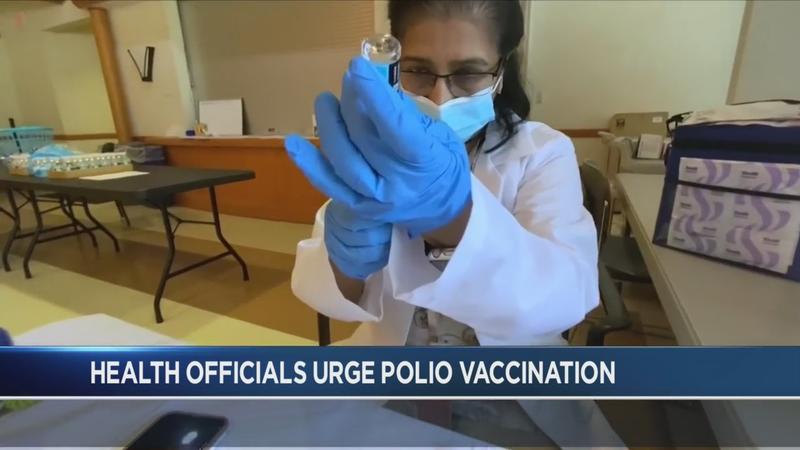Health Department update on polio in New York State
ALBANY, N.Y. (WHEC) – The New York State Department of Health (NYSDOH) updated New Yorkers on polio in New York State Monday. This follows the identification of a case of polio in a Rockland County resident.
The NYSDOH launched wastewater surveillance, among other detection efforts, and detected the virus in samples from Rockland County. These findings highlight the importance of vaccines to protect all New Yorkers from polio.
“Polio is a dangerous disease with potentially devastating consequences,” State Health Commissioner Dr. Mary T. Bassett said. “In the United States, we are so fortunate to have available the crucial protection offered through polio vaccination, which has safeguarded our country and New Yorkers for over 60 years. Given how quickly polio can spread, now is the time for every adult, parent, and guardian to get themselves and their children vaccinated as soon as possible.”
As part of ongoing surveillance efforts, wastewater samples are shared with the CDC and WHO. NYSDOH continues to work with health authorities to assess the spread of the virus, and ensure that prevention measures, like vaccine clinics, are in place.
All New Yorkers who are unvaccinated, including children 2 months and older, those who are pregnant, and people who have not completed their polio vaccine series previously, should get vaccinated right away. Unvaccinated New Yorkers who live, work, go to school in, or visit Rockland County are at the highest risk of exposure.
Polio is a serious and life-threatening disease. Spread from person to person, polio is very contagious, and a person can spread the virus even if they aren’t sick. Symptoms, which can be mild and flu-like, can take up to 30 days to appear. Some polio cases can result in paralysis or death.
While there is no treatment or cure for polio, it is preventable through safe and effective vaccination. People who have received the standard child immunization schedule, required for all school-aged children, are considered to be at lower risk.
Learn more about polio and the polio vaccine here.
